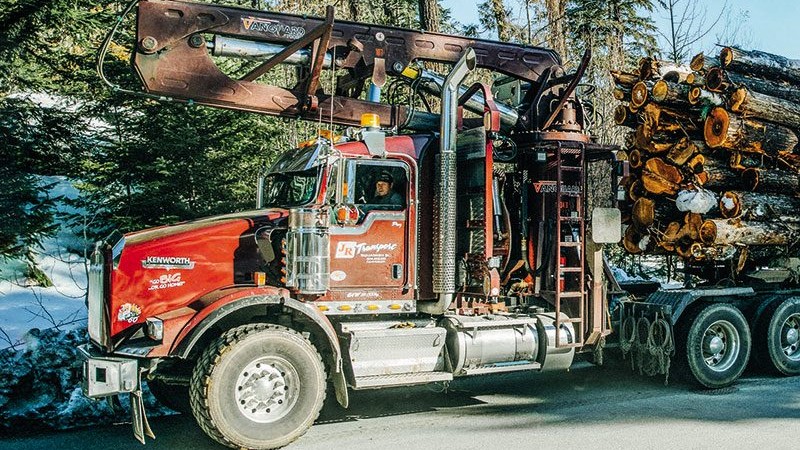
Mention the Sea to Sky Highway and those who know immediately think Vancouver, Whistler, and snow. But wind the clock back 50 years and logging ruled supreme. We meet a transport operator in the middle of Squamish, British Columbia, who proudly stands on that tradition.
Arriving at the yard of JR Transport on Loggers Lane in Squamish, BC, approximately halfway between Vancouver and Whistler, you are immediately greeted with memories of the past. Proudly standing at the gate is an ex-army 6×6 GMC logger conversion sitting alongside a typical 1970s logging-spec LW Canadian Kenworth. The pair truly set the scene as well as the tone, vividly demonstrating what makes this company tick, especially given the changes to the local demographics and colossal increase in tourism brought about by the arrival of ski resorts and their related industries.
We meet Darren Doak, owner of JR Transport, prepping his 2024 T800 Kenworth for a run up to a skid near Whistler to collect a load of ‘soft’ (Cedar) wood. Darren has a long history in Squamish, moving there in 1967 at the age of one with his family when his dad landed a job working at the local sawmill.
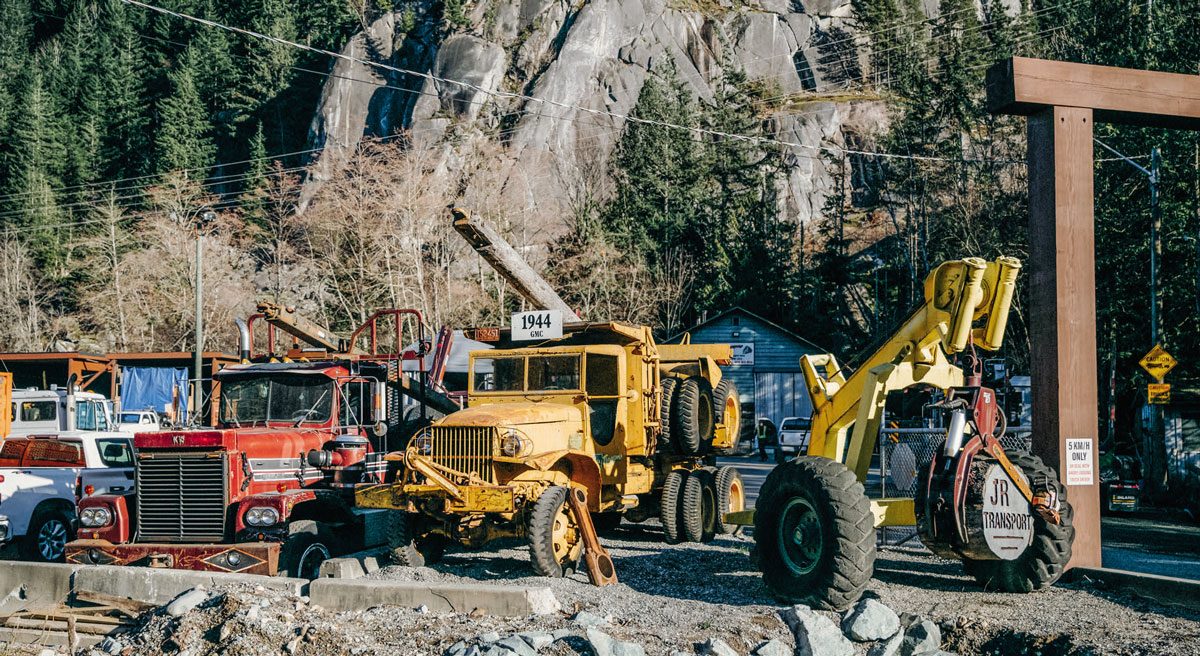
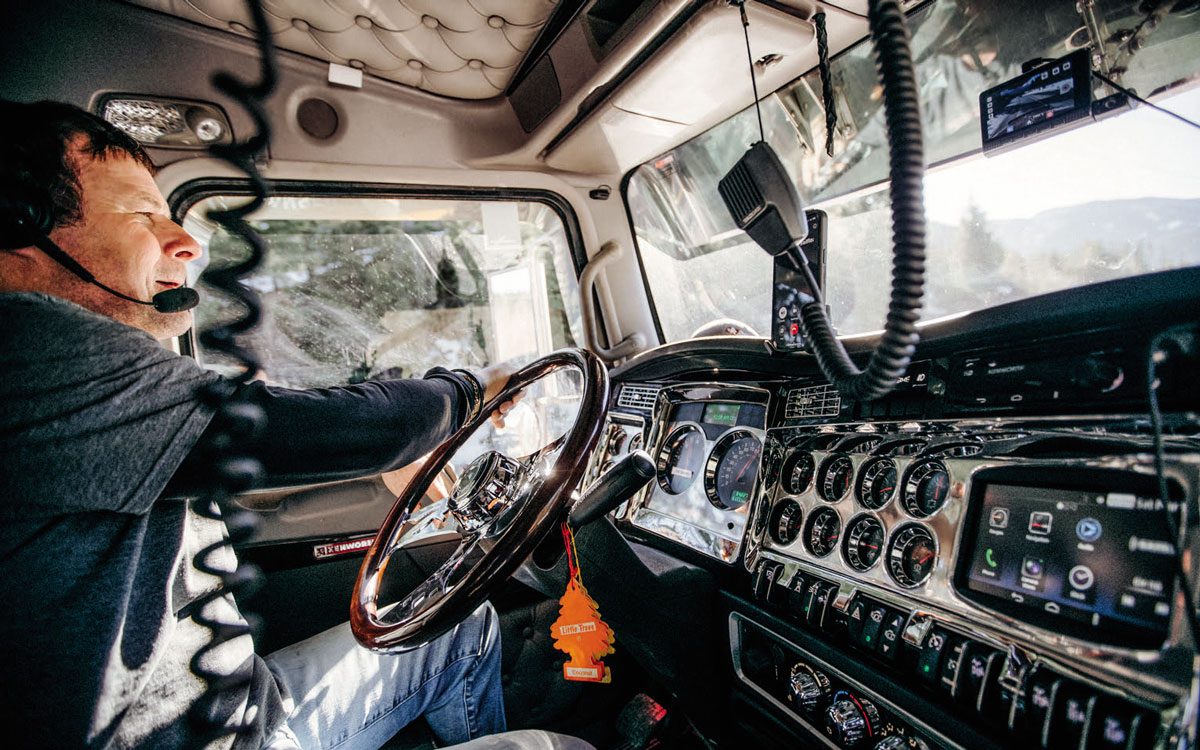
“I went to school here up to grade 12, then I moved to Vancouver to attend BCIT and study. I wanted to be a machinist, but after 10 months, I returned to Squamish and moved back into home,” he says.
“It’s a bit of a funny story how I started with JR Transport. I had an old hot rod, and one night I was working on the car getting ready to head out to a local spot, Brohm Lake, with some friends. Dad came home and said to me, ‘Jack Rempel [a family friend and owner of JR Transport] wants to know if you could go to his shop tonight and give him a hand doing a clutch job on one of his logging trucks’. I said ‘No, sorry Dad, I don’t think so, I’m washing the car, I’ve got girls lined up and we’re going to the lake’. With that, my dad turned to go inside and said, ‘Hey Darren, when you get home from the lake, pack up your stuff, you are moving out. No job – no live here, you aren’t at school anymore’.’
“So that night in June 1986 I started working for Jack at JR Transport as a mechanic’s helper,” Darren says with a laugh. “Since then, I have never had any other job; this has been my one and only job since I got out of high school. In 1995 I had the opportunity to purchase the business from Jack. He was very helpful at that time by loaning me what I was not able to finance, and staying involved. He mentored me and helped me change from worker to company owner. But I am not the sort of business owner who sits in an office and gives out directions. I much prefer to be behind the wheel with a load of logs, working with the clients face to face.”
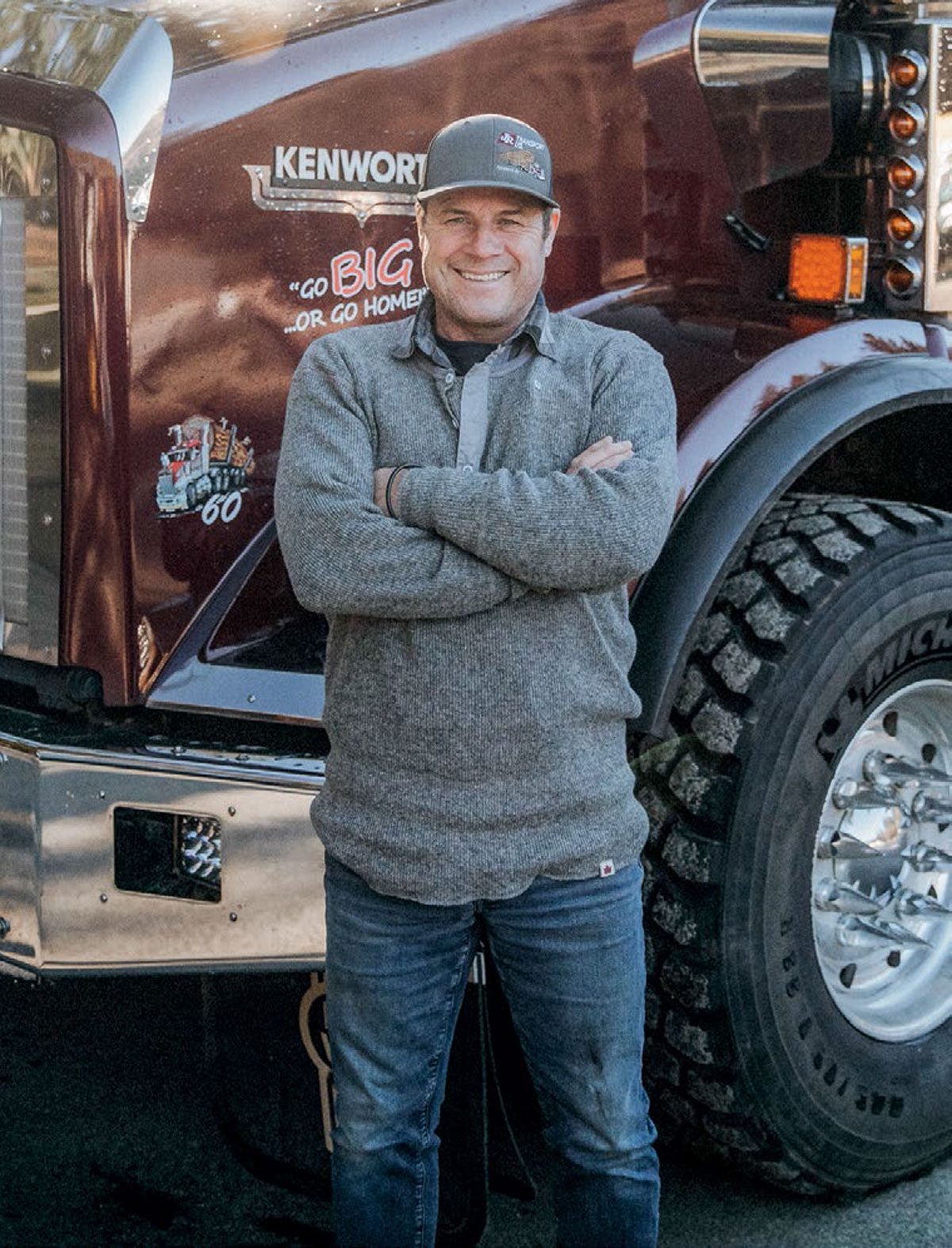
The JR Transport fleet currently has five Kenworths – four of the rugged North American T800 model and one W900. “Yeah, in the past the fleet has reached 12 trucks, but it starts getting out of hand and also means a lot more time in the office for me. We’ve had Peterbilts and Western Stars in the past, but all my guys are Kenworth boys, and we have a great relationship with the local dealer.
“The T800 is the best fit for us, but one of my drivers really wanted a W9, so I let him go pick his own. We lose a few kilos on the front axle, but the truck looks cool, and we’re happy to lose a few kilogrammes of payload for a tonne of cool.
“The safety of the trucks has improved immensely over the years. Back in the day, we would see someone’s truck upside down in the bush probably once a month. But now, with research, things change. The first change was moving from an 8ft (2440mm) ‘stance’ (track) to 8ft 6in (2590mm). Then tri-drives came along, and tridem trailers. It was a game-changer; the footprint of the truck is now way better on the ground, adding a load of stability. It’s a big effort to tip over a modern tri-drive truck these days. You really have to work at it hard now,” Darren says, laughing.
“Squamish has changed a lot over the years, it is not the small community that we grew up in. When I was a kid, it seemed like there were as many logging trucks in the town as there were cars getting about; the logging industry was thriving.”
Darren says not a lot of tourists came to the area because access was not good and what’s now the Sea to Sky Highway was back then known as the Killer Highway. The 2010 Winter Olympics changed that, and rebuilding the highway opened the area to tourism.
“There has been a decline in the logging industry for some time. We are one of only three logging companies left in Squamish now. But we have found opportunities as well through all this. We hauled gravel for a bit and have also supplied trucks and machinery to the film and TV industry, but we come back to logging as it really is our thing.
“Fitting the self-loaders has also opened up more opportunities for us. We are able to do jobs that some other companies can’t, but we are also travelling further now for our logs. It is the business that we know, and it is the job that I have been in since I left school. So, yeah, we are comfortable continuing doing what we do well.”
There is no question about it, the classic iron at the front gate is most definitely more than just garden art. It represents the mantra of JR Transport, where the memories from the past help form strong pathways towards the future.
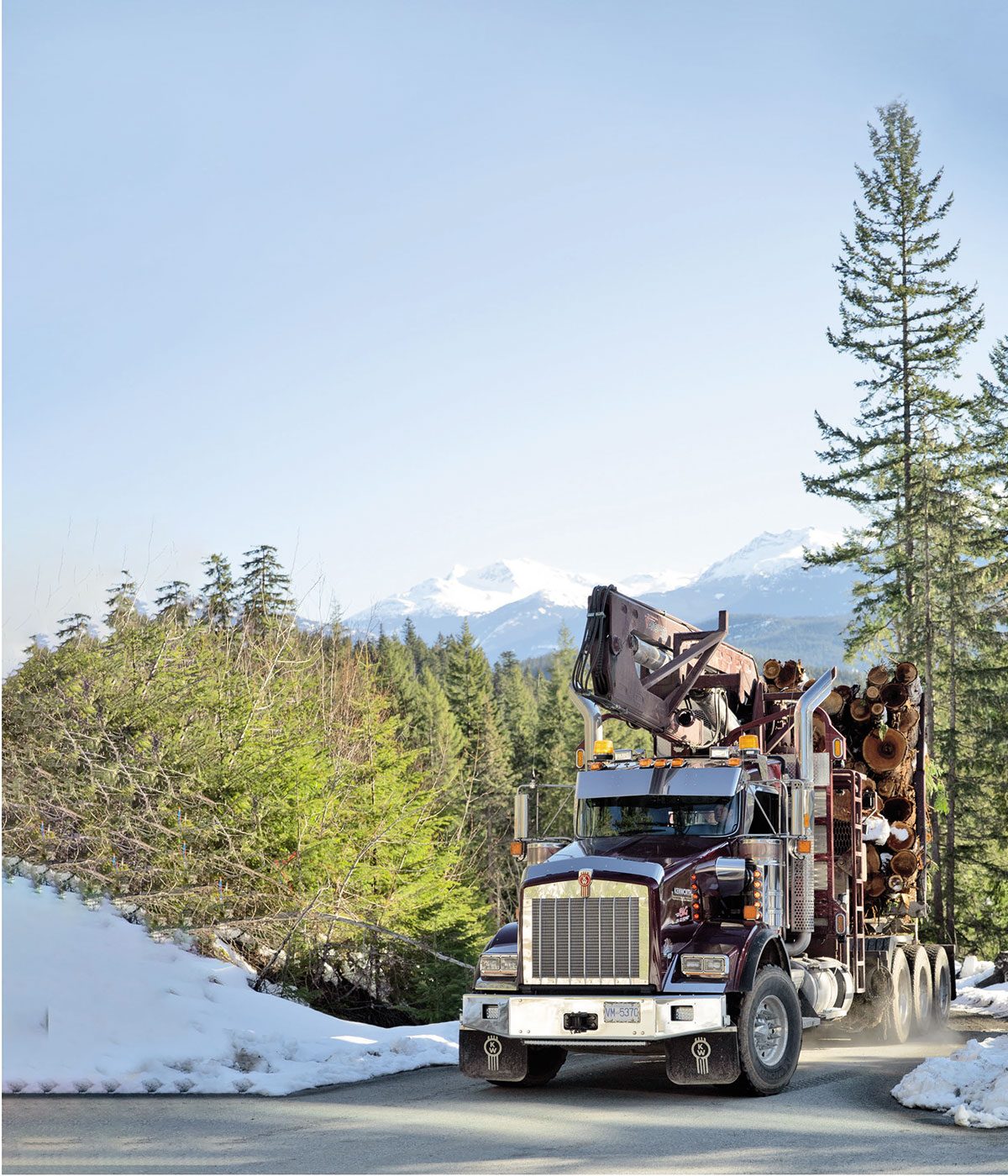
Read more
Canadian Classic
0 Comments7 Minutes
Truckloads of support
0 Comments5 Minutes
Leo van der Weerd
0 Comments2 Minutes














